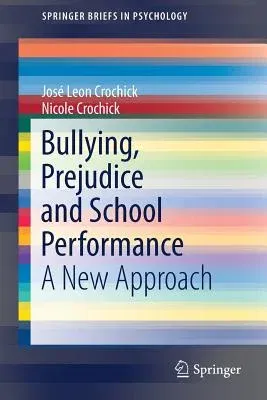This brief presents a new approach to the study of bullying and
prejudice in school settings, analyzing the particularities of these two
forms of violence and relating them to the hierarchies that distinguish
students based on academic performance and popularity. Analyzing data
gathered by surveys carried out between 2010 and 2014 with 274 students
from public schools of São Paulo, Brazil, the authors show that, despite
bullying and prejudice are related, they have specific characteristics
that need to be acknowledged in order to help educators develop more
efficient initiatives to prevent them.
Building upon the Critical Theory of Society - especially Adorno's
studies of authoritarian personality and school hierarchies - the
authors develop a theoretical framework that helps researchers and
educators to identify the particularities of bullying and prejudice and
develop specific strategies to deal with them. In addition, the
empirical and theoretical elements presented in the book show how these
forms of violence are related to the two hierarchies that exist side by
side in schools - the official hierarchy that distinguishes good and bad
students based on their academic performance and the unofficial
hierarchy characterized by the distinction between those who excel in
dating, fighting, in team sports and those who do not excel in any of
these activities.
This innovative volume:
- Argues that bullying and prejudice are different forms of school
violence that demand different theoretical and practical approaches
- Examines data gathered by surveys carried out with 274 students of
public schools in São Paulo, Brazil, between 2010 and 2014
- Relates bullying and prejudice to the hierarchies that distinguish
students based both on their academic performance and popularity
- Analyzes the impact of factors such as autonomy from the school
authority and the ideology of authoritarianism on bullying and prejudice
- Presents strategies to fight bullying and prejudice in schools
Bullying, Prejudice and School Performance: A New Approach is a useful
and innovative tool for psychologists, educators, sociologists, school
teachers and researchers in the fields of child and school psychology,
educational psychology, sociology of education and related disciplines.


